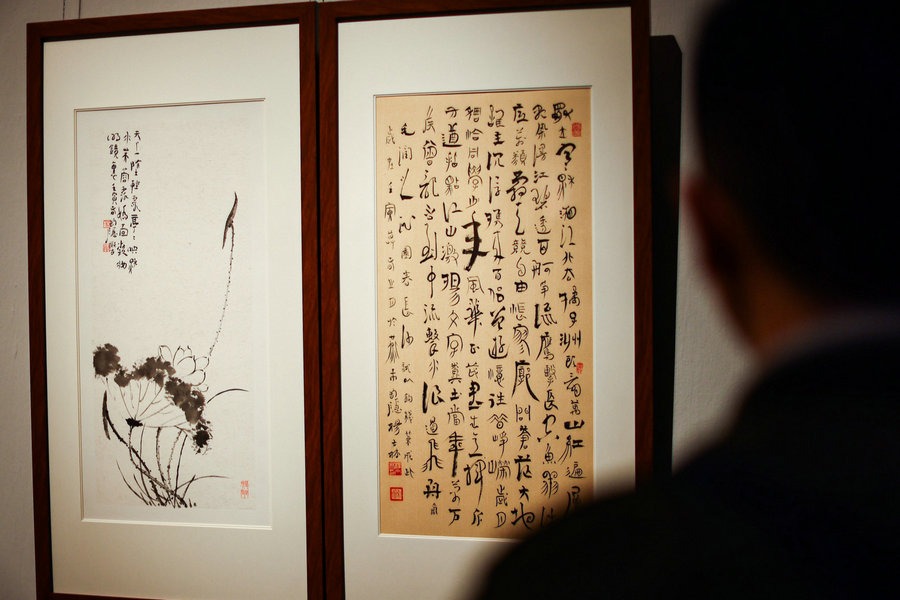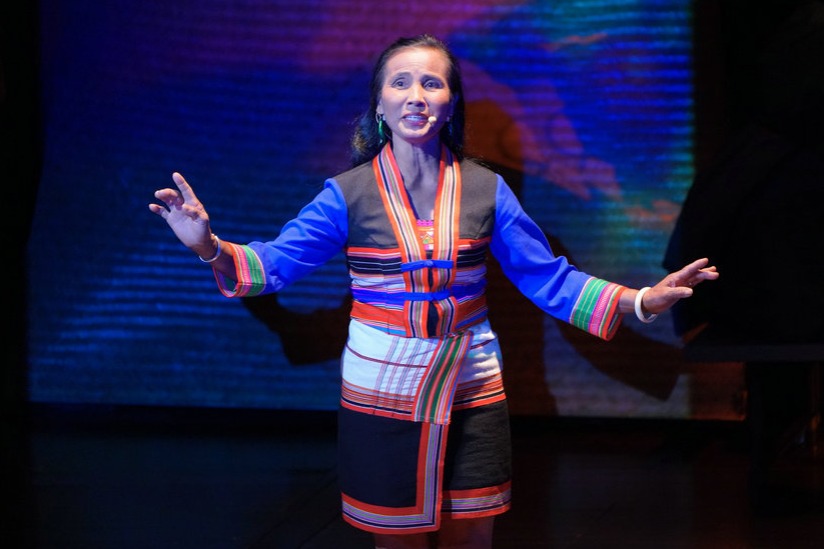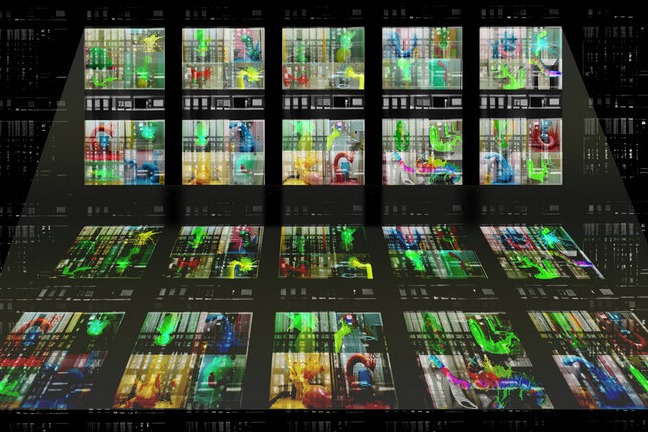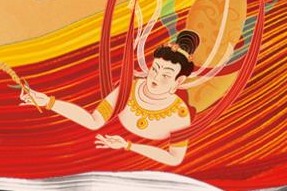Brilliant stars of Chinese science fiction writers

In recent years, thanks to the expansion of science fiction publishing platforms, the establishment of awards and incentive mechanisms, and the support of provincial governments, China's science fiction boom has been growing continuously. New generations of writers has emerged, among whom
Pan Haitian, A Que, Tang Fei, Zhang Ran, and Gu Shi, have become representative authors with distinctive styles. These rising stars, while inheriting tradition and pursuing bold innovation, have opened new horizons in both domestic and international book markets with their global vision, profound reflections, and concern for the future of humanity.
Pan Haitian

Pan Haitian, born in 1975 in Fujian province, graduated from Tsinghua University's Department of Architecture and is regarded as a representative of China's third generation of science fiction writers. His major works include City of Clones, The Legend of the Master Craftsman Yanshi, Run, Dajiao, Run, The Island of Immortality, and the short story The Hunger Tower. He has won the Galaxy Award multiple times.
Pan Haitian is known for his bold innovations in science fiction, introducing elements of fantasy and blurring the boundary between "technology" and "magic." Together with other writers, he helped launch the Jiuzhou Series, creating a new space for writers' imagination. In exploring themes of creation, he increasingly focuses on the relationship between human consciousness and the world, incorporating traditional science fiction motifs like the brain-in-a-vat and virtual worlds, alongside fantasy concepts such as embodied consciousness and illusionary magic, as well as religious topics like the celestial realms and the mortal-divine relationship, and modern media technologies like film and video games. His works remind us that world-making can occur at any moment, perhaps with a single thought.
As a lover of soft science fiction, Pan Haitian aspires to build worlds in his heart, cherishing those that are close to him and appreciating those that are not. He has been deeply influenced by the works of Ray Bradbury, especially their subtle melancholy and poetic sadness, and he strives to create refreshing, distinctive works of his own.
A Que

Born in 1990 in Jingzhou, Hubei province and originally named Li Wei, A Que was a graduate of Sichuan University in Hydraulic Engineering in 2014. His representative works include Farewell, Doraemon, An Account of the Sky Whales, Starlit Voyager, Walking with Robots, Against the Stream, and Mrs. Griffin Prepares to Commit Suicide Tonight. He has received the Global Chinese Science Fiction Nebula Award and the Galaxy Award.
In university, A Que joined the Sichuan University Science Fiction Association, winning first prize in a national intercollegiate fantasy writing competition with The Quiet Awakening. Robots often appear in his stories. For example, in Walking with Robots and Among Robots, household robots are loyal and steadfast, never abandoning their human companions, and wartime robots would accompany their young masters to wait for a sunrise.
On the subject of generative AI, A Que remarked: “I remain optimistic about human authors, because AI is still incapable of independently producing a science fiction novel that reaches even a passing level. Perhaps one day AI will produce masterpieces, which makes me feel ambivalent. I worry about the profession of writers and stay alert, but I am also a little curious. Still, I firmly believe that human emotion is the greatest charm of fiction. Before writing each story, authors must try to find its emotional core and points of brilliance.
Tang Fei

Born in 1978 in Jiangsu province and originally named Wang Jing, Tang Fei is a member of the Science Fiction and Fantasy Writers Association of America (SFWA). Her representative works include Odicyber, Post-Humanity, The House of Light, The Man Who Saw Cetus, The Nameless Feast, Call Girl, and Broken Stars. She has won the Silver Award for Favorite Translated Mystery & Fantasy Novel in the United States and the Chinese Science Fiction Readers' Choice Award.
Tang Fei adopted her pen name in 2008 when she wrote Call Girl, which was translated into English by Ken Liu and published in the United States. Liu has described her works as "speculative fiction." For Tang Fei, science fiction is a way of thinking, which frees us from stereotypes and habitual patterns of thought through estrangement, extreme scenarios, and world-building. And thus science fiction changes how we frame problems and encourages us to re-examine daily life.
She states that in the age of AI, our senses have been colonized by vision and sight dominates how we receive information and develop relationships. Urban life heightens stress, making people increasingly crave intense visual stimulation, while taste and smell grow dulled. What happens to human relationships when our senses become alienated and numbed? Tang Fei says she enjoys the video game The Last of Us, which has been adapted into a TV series. In that story, the Earth becomes breathtakingly beautiful after humanity fades away. "If Earth can absorb and outlast humanity," she reflects, "so can the universe."
Gu Shi

Born in 1985 in Beijing and originally named Gu Zongpei, Gu Shi holds degrees from Tongji University and the China Academy of Urban Planning and Design. She is a senior urban planner and part-time science fiction writer. Her representative works include Möbius Space-Time, The Brain Gambit, The Memory of Time, Chimera, and 2181: Overture. She has won the Galaxy Award, the Chinese Science Fiction Nebula Award, the Diaoyucheng Science Fiction Award, the Macao International Science Fiction Award, and the Science Fiction Planet Award.
Gu Shi's early works, created in 2011, were influenced by Western science fiction and often featured male protagonists. In 2017, after Möbius Space-Time won an award and was translated into English, a foreign female reader asked her why her stories contained neither women nor China. This marked a turning point, and she began writing consciously as a Chinese female author, moving away from stereotypical roles to portray women as she envisioned them.
She later wrote The Brain Gambit, a novella with the cadence of martial arts fiction and the feel of stage drama, which won the Galaxy Award for Best Novella. In subsequent works such as For Life's Poetry and the Beyond and Chronicle of Deicide, she created powerful female characters. In her newest works, she confronts women's predicaments more directly and proposes possibilities for solutions, depicting both more optimistic and more pessimistic gender futures as an early warning. She is currently compiling an anthology of works by Chinese female science fiction writers.
Zhang Ran

Born in 1981 in Taiyuan, Shanxi province, Zhang Ran is the founder of the Science and Fantasy Growth Fund and a graduate of Beijing Jiaotong University. His representative works include An Age of Ice, Three Feet of Snow in Jinyang, The Year of Great Famine, When the Sun Fell, The City Where the Wind Rises, and Ether. He has received the Galaxy Award and the Global Chinese Science Fiction Nebula Award.
Transitioning from online literature to science fiction, Zhang Ran debuted with Ether in Science Fiction World magazine, which was later published in Clarkesworld, an American science fiction magazine, and included in an American science fiction anthology by OR Books. He believes true science fiction must be both intensely rational and prophetic. His recent novel Blue Sky is set in a cyberpunk-inspired vision of Hong Kong's Kowloon Walled City, using a nested circular structure to tell three interconnected stories, forming a narrative with no beginning and no end. He expresses a desire to try diverse writing types and narrative styles in his science fiction works.
Ken Liu has compared Zhang Ran's stories to classic rock music, saying, "His stories are driven by a narrative bassline, accompanied by lyrics that evoke the full spectrum of human emotion, from wrenching nostalgia to unrestrained joy. He continually invents new ideas, experiments with form, and develops new perspectives, breaking through the boundaries of genre fiction."





































